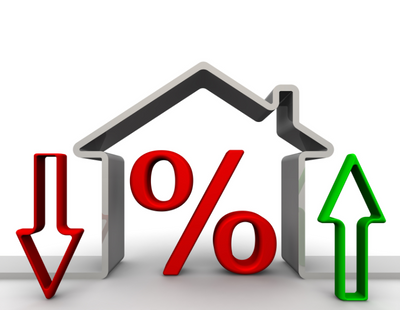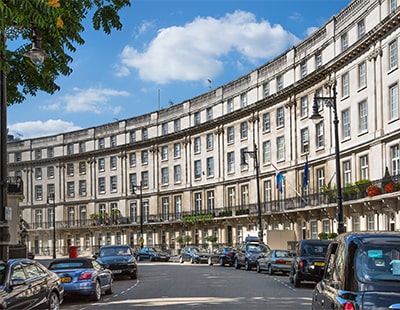Savills is predicting transactions will drop to 870,000 in 2023 before bouncing back to 1m in 2024 and remaining flat at 1.1m between 2025 and 2027.
It suggests there will be a growing divergence between cash and equity rich or cash buyers and other groups in their ability to transact, and between the mainstream market and prime markets where housing wealth is most concentrated.
On the assumption that interest rates gradually ease back from the middle of 2024, Savills is forecasting that values will begin to recover and that the average UK house price will rise by a net figure of 6% in nominal terms over the next five years.
By end of the forecast period, the average UK house price is expected to be at £381,578, a £22,290 gain over five years.
Lucian Cook, Savills head of residential research, said: “The housing market has remained remarkably strong through the first nine months of 2022, but demand dynamics changed over the autumn with the realisation that the Bank of England would need to go faster and further to tackle inflation.
“A new prime minister and fiscal policy U-turns appear to have reduced some of the pressure on interest rates, but affordability will still come under real pressure as the effect of higher interest rates feeds into buyers’ budgets.
“That, coupled with the significant cost of living pressures, means we expect to see prices fall by as much as 10% next year during a period of much reduced housing market activity.”
Cook said there are several factors that will insulate the market from the risk of a bigger downturn as seen after the financial crisis including stress testing by mortgage lenders.
He added: “ This, combined with relatively modest unemployment expectations and signs that lenders are looking to work with existing borrowers to help them manage their household finances, should limit the amount of forced-sale stock hitting the market next year.
“Looking longer term, the Bank of England’s relaxation of mortgage regulation over the summer has substantially enhanced the prospect of a price recovery; but only as and when interest rates start to be reduced, once inflationary pressures in the wider economy ease.
“Meanwhile, rental value growth will continue to outpace earnings growth in the short-term because of the pronounced imbalance between supply and demand, which will come as positive news to landlords already facing higher borrowing costs, but will put increasing pressure on struggling tenants.”
Savills said it expects mainstream housing markets furthest from London, where mortgage affordability is least stretched, to be the strongest performers over their five year forecast period, with slightly less short term downward pressure on prices and more capacity for price growth during the recovery.
Meanwhile, the prime housing markets are expected to see smaller price falls and a stronger recovery than their mainstream counterparts, due to less reliance on mortgage debt, Savills said.
|
|
2023 forecast
|
2024 forecast
|
2025 forecast
|
2026 forecast
|
2027 forecast
|
|
UK House Price Growth
|
-10.0%
|
+1.0%
|
+3.5%
|
+7.0%
|
+5.5%
|
|
Transactions
|
870k
|
1,000k
|
1,110k
|
1,110k
|
1,110k
|
|
Rental Growth
|
+6.5%
|
+4.0%
|
+2.0%
|
+2.4%
|
+2.3%
|
|
GDP growth*
|
-0.5%
|
+1.8%
|
+2.7%
|
+2.1%
|
+1.6%
|
|
Unemployment*
|
4.6%
|
4.5%
|
4.1%
|
3.9%
|
3.8%
|
|
Bank Base Rate*(year-end)
|
4.0%
|
3.5%
|
2.5%
|
1.75%
|
1.75%
|
Source: Savills research, *Oxford Economics (Note: These forecasts apply to average prices in the second hand market. New build values may not move at the same rate.)
















.png)


.png)



Join the conversation
Be the first to comment (please use the comment box below)
Please login to comment